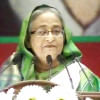Michael Madhusudan Dutt: A pioneer of modern Bangla literature

In the classic Sanskrit epic, The Ramayana, Ravana, the monstrous rakkhosh ruler of Lanka was depicted as prideful and arrogant, as was his son, Meghnad. But the pioneer of Renaissance in Bangla Literature, Michael Madhusudan Dutt, saw both Ravana and Meghnadh through a multifaceted, humanised lens. In his epic, Meghnadbodh Kabbo (1861), he does not portray Rama as the hero; instead, Ravana and Meghnadh are shown to be tragic heroes, complex characters with nuance and emotional depth. Divided into nine cantos, each segment presents different scenarios in a masterful blend of mythology, history, social issues, and humane emotions. Through this epic poem, Dutt introduces amritakkhor chhanda, or the blank verse, in Bangla literature. In writing this poem, Dutt merges elements from Western epics, inspired by the likes of Homer, Shakespeare, and John Milton, to reinterpret Ramayana, something never done before in Bangla literature—thereby pioneering Bangla literature into an age of Renaissance.
Born on January 25, 1824, in Sagardari, Jessore, Michael Madhusudan Dutt's life was marked with bold decisions and an enduring legacy that lives on through his revolutionary literary works. As a child, after finishing his education in Sagardari, he attended Hindu College, where he studied under a Westernised curriculum. It was during this time that Dutt developed a sense of revulsion to Indian culture and longed to be like the Europeans. Under the influence of his teacher, David Lester Richardson, Dutt grew a love for English poetry, especially for Byron's poems. He even sent his works to many publications in England during this time; however, these texts were never published. He was described as an ace student and wrote essays on complex issues, including feminism. On February 9, 1843, Dutt embraced Christianity, and thus, had to leave Hindu College for Bishop's College. Due to his conversion to Christianity, he was disowned by his father, and so began a life marked with hardship.
During that time, he also developed his skills as a polyglot, learning Greek, Latin, and Sanskrit, and editing various newspapers as well. Upon marrying Rebecca Thompson McTavish, a European woman, in 1848, "Michael" was added to his name. His first novel in English, The Captive Ladie (1849) was written under the pseudonym Timothy Penpoem during this time. However, this book never received much acclaim.
10 years later, he wrote Sharmista (1859), the first successful play in Bangla literature. Sharmistha, written in blank verse, is based on The Mahabharata and tells the story of King Yayati, his wife Devyani, and Sharmistha, the only daughter of the asur-raja or the demon king. The central focus of this play emphasises a complex love triangle among the main characters. In this play, Sharmistha and Devayani display significant agency, portraying women through a complex lens.
He was thus deemed the first rebel poet, with his writings depicting women's liberation, colonial dynamics, and tension in plays such as Sharmishta and Krishnakumari (1860).
Krishnakumari is thought to be one of the most successful tragedies in Bangla literature. Central to this play are the themes of political dynamics and personal relationships, as it focuses on characters such as King Jagat Singh, a promiscuous ruler of Jaipur who becomes enamoured with Krishnakumari, the beautiful daughter of King Bhim Singh of Udaipur. His advisor, Dhandas, is greedy and helps the king to plot in the hopes of having Krishnakumari as his wife. In a conflicting tale of power, betrayal, and politics, Krishnakumari remains one of the most tragic plays of Bangla literature. That same year, he also penned the farces, "Ekei Ki Bole Shobbhota?" (1860) and "Buro Shaliker Ghore Ro" (1860).
"Ekei Ki Bole Shobbhota?" is a social critique written at a time when colonial Bengal was undergoing significant shifts, as it faced challenges with existing norms and ushering in a new culture. Madhusudan satirises the debauchery and reckless lifestyle promoted by the anglicised Indian Bangali youth of the 19th century through the main character, Nabakumar, and his companions. These characters attend the Gyanatarangini Sabha (a fictional intellectual society) where they engage in drinking recklessly, singing, dancing, and socialising with courtesans. They claim to be "modern and educated", but their lives lack higher ideals, intellectual curiosity, and a sense of social responsibility. In this farce, Dutt criticises the hypocrisy, hedonism, and lack of ideals among them, and his portrayal of upper class Bangalis is starkly sarcastic.
Meanwhile, in "Buro Shaliker Ghore Ro", Dutt critiques the corruption, hypocrisy, and abuse of power in feudal societys. It exposes how those in positions of authority, like Bhaktaprasad, a wealthy Zamindar, exploit their power for personal gain, disregarding morality or their assigned responsibilities.
He also introduced sonnets to Bangla literature. In 1862, he left for England and France to pursue his dreams of becoming a barrister-at-law. He wrote the sonnets titled, "Bagbasha" and "Kopotakkho Nod", later published in Choturdoshpodi Kobitaboli (1866). "Kopotakkho Nod" is a tribute to his hometown, Sagardari, through which the river Kopotakkho flows. In this sonnet, he reminisces over his childhood memories as he grew up amid the tranquillity of Kopotakkho Nod, dashed with longing and a fear of never being able to return to his motherland.
His other works included Padmavati (1859), Tilottama Sambhava Kavya (1861), Brajagana Kavya (1861), and Veerangana Kavya (1861) among many others. His works not only transformed Bangla literature by pioneering modern writing forms, but he also challenged societal conventions, paving the way for a Renaissance in Bangla literature. He died on June 29, 1873, leaving behind a legacy of glory in his literary works. January 25, 2025 marks the 201st birth anniversary of this great writer.
Sabrina Sazzad is an admissions candidate. Email: [email protected]

 For all latest news, follow The Daily Star's Google News channel.
For all latest news, follow The Daily Star's Google News channel. 








Comments